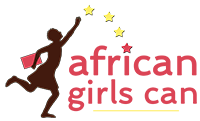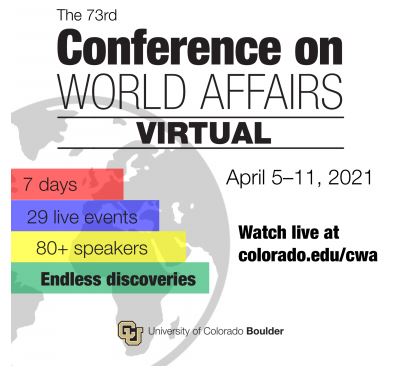 University of Colorado’s annual Conference on World Affairs always includes Africa and women’s empowerment in its line up of topics for speakers. Even though it was conducted virtually, the April 2021 CWA was no exception.
University of Colorado’s annual Conference on World Affairs always includes Africa and women’s empowerment in its line up of topics for speakers. Even though it was conducted virtually, the April 2021 CWA was no exception.
In a talk entitled “Africa on the Rise: A Continent Overcoming its Challenges,” several experts (two who are from Africa and one, a former US Ambassador to Botswana) had a lively discussion about the current situation in Africa. Here are notes from their panel on April 6, 2021.
We can’t address global challenges like climate change and infectious diseases without leadership from Africa. Effort should be made to understand and appreciate the continent’s diversity, and the unique strengths and challenges of specific areas.
Dr. David Bassiouni began the panel by describing Africa in general, including what he called “beacons of hope.”
Africa…
- It is huge. The continent of Africa is the size of the US, Europe, and China, combined.
- It is young. The median age in Africa is 19.7 versus 30.4 worldwide.
- It is rich. Africa has the largest mineral resources in the world.
- There is phenomenal growth in the middle class and there have been achievements in governance, business, and society.
Nevertheless, Africa still faces significant challenges: poverty, international debt, lack of good governance/democracy, the “mixed blessing” of China, and now, setbacks from COVID-19.
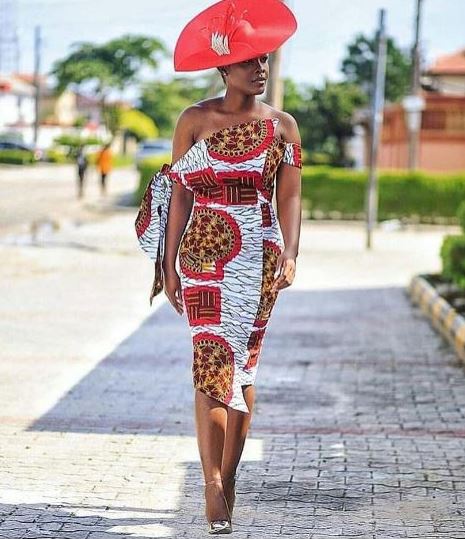 Michelle Gavin cautions us to be wary of narratives and assumptions about such a vast and diverse continent. The continental trend lines do not all move in one direction. It is not all extractions (i.e. gold, diamonds etc.) or subsistence agriculture. There is growth in technology and many other business and service categories.
Michelle Gavin cautions us to be wary of narratives and assumptions about such a vast and diverse continent. The continental trend lines do not all move in one direction. It is not all extractions (i.e. gold, diamonds etc.) or subsistence agriculture. There is growth in technology and many other business and service categories.
Gavin feels the biggest challenge is job creation since 60% of the population is under age 25. The concerns and aspirations of young people need to be matched with opportunities available to them.
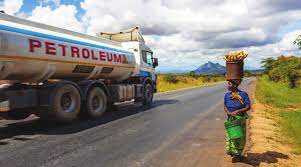 Foreign engagement can help or harm countries in Africa. Due to rich mineral deposits, everyone wants a partnership with Africa. In addition to China, the US, Europe, India, Japan, and the Gulf States all want access to resources and growing markets. This gives Africa the CHOICE and power in these partnerships.
Foreign engagement can help or harm countries in Africa. Due to rich mineral deposits, everyone wants a partnership with Africa. In addition to China, the US, Europe, India, Japan, and the Gulf States all want access to resources and growing markets. This gives Africa the CHOICE and power in these partnerships.
Pauline Vande-Pallen joined the discussion from Ghana and talked about the impact of COVID-19. Essentially, countries in Africa have learned how susceptible they are to external shocks as their economies came to a standstill. They import too much and don’t manufacture enough. As industries are developed, community members and civil society voices must be a part of the equation. There must be a system of accountability from within each country to reduce corruption.
Ask an average person in middle America how many countries there are in Africa and they are not likely to know that there are 54! In fact, unfortunately, a lot of people would actually state that Africa itself is a country. Promoting geography in US education should be a priority.
On November 14, 1884, 13 European nations gathered in Berlin and indiscriminately divided Africa amongst themselves. The US had a delegate to the conference to the Berlin Conference, the explorer Henry Stanley. They gave no thought to tribes or cultural groups, which has lingering effects to this day, even though the map has been redrawn and replaced with independent countries.
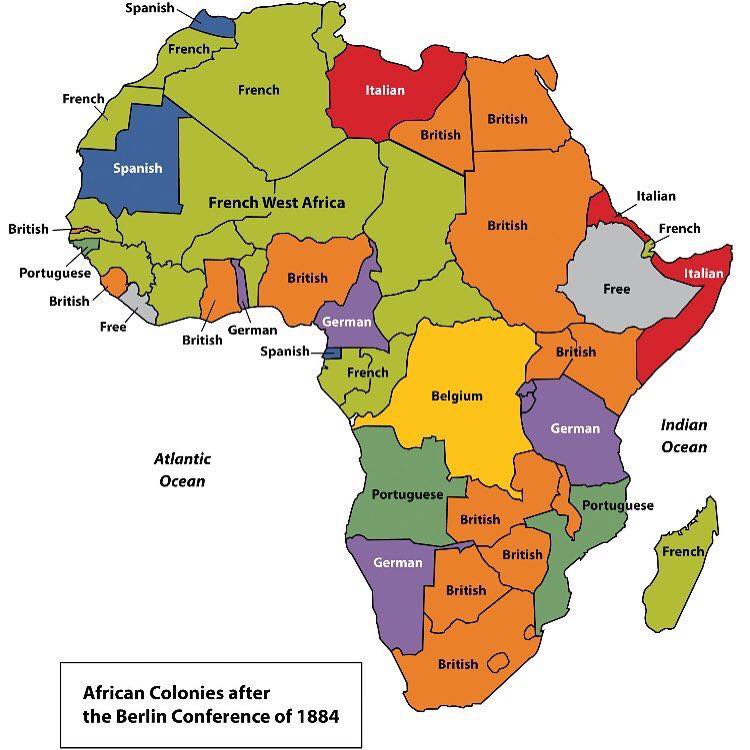
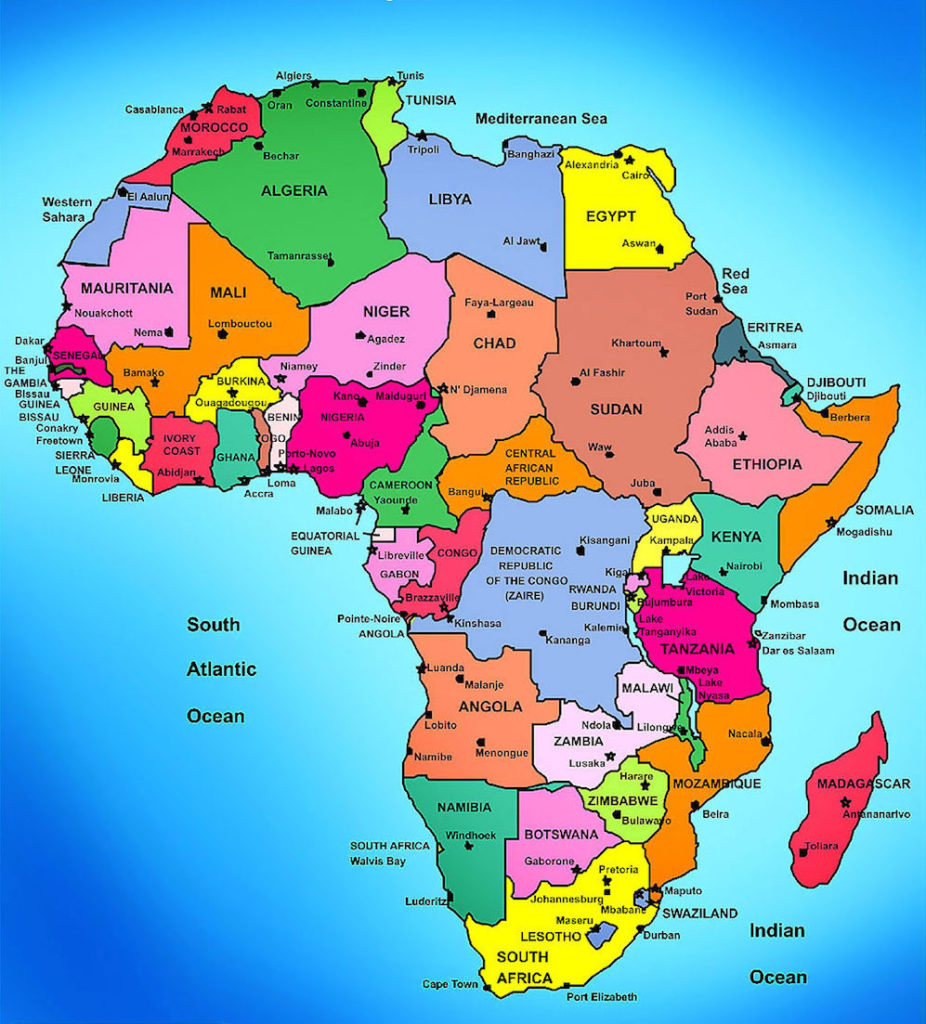
Faces of a Modern Africa
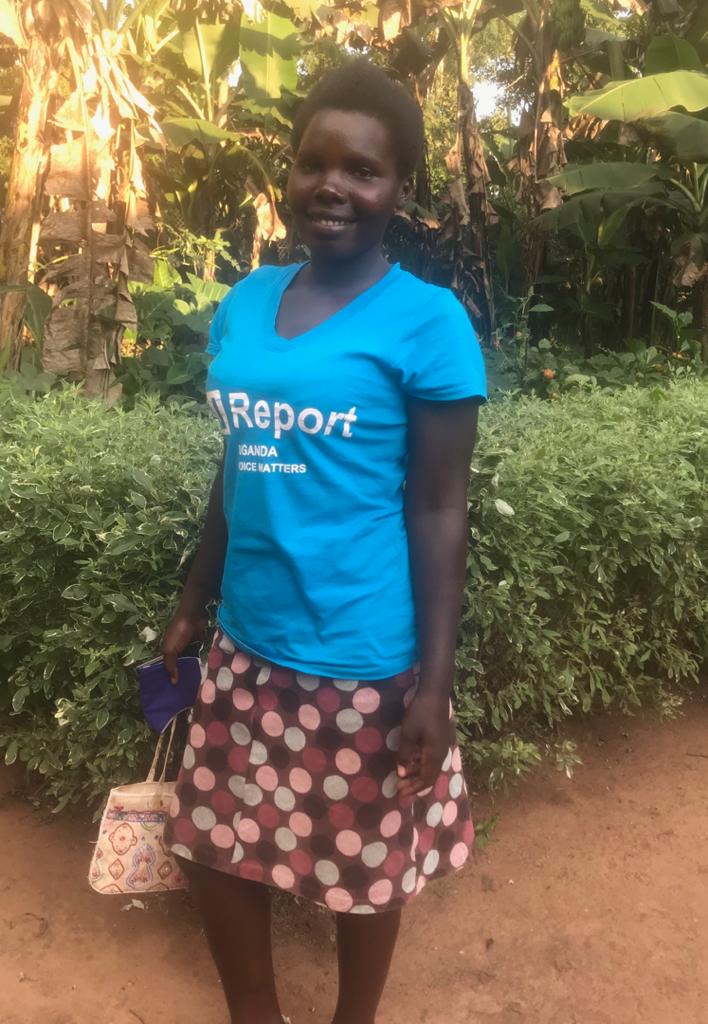
Adong Flavia – Flavia has just begun her Bachelor’s in Education from the prestigious Makerere University in Kampala, Uganda. Flavia was supported for her Advanced Level studies (last two years of high school) through African Girls Can. She will be part of a new generation of teachers inspiring the next generation of students. Flavia expresses herself through poetry. Flavia’s Story / A Poem by Flavia
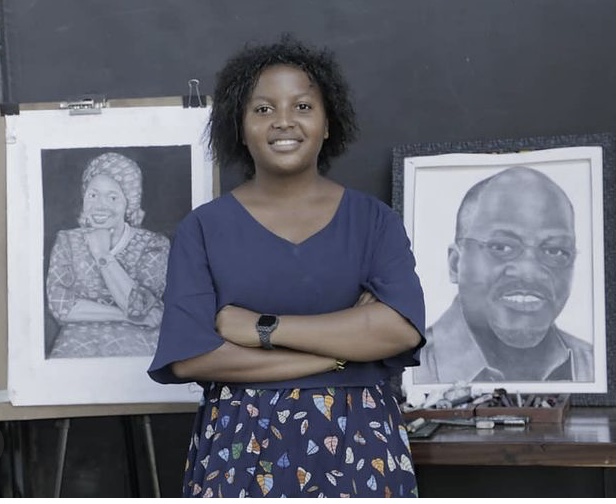
Mhelepu Shillingi – Mhelepu is studying Accountancy at university, but her real passion is drawing and she is turning her self-taught talent into income. She takes consignments for portraits and also makes artwork that communicates the challenges of girls in society in Tanzania. She does live drawing demonstrations, has been featured in the media, and was recently was given an award from a Member of Parliament in Dar es Salaam for being a role model by using her art business to pay her school fees. Mhelepu participated in a leadership and mentoring program called Kisa Project (through Girls Livelihood and Mentorship Initiative (GLAMI)) during her A-Level studies.
Meet the Speakers
Dr. David Bassiouni, a former government official from the Sudan who served with the United Nations (primarily UNICEF) for 20 years and now has his own development consulting firm.
Michelle Gavin, Senior Fellow for Africa Studies, Council on Foreign Relations, and Ambassador to Botswana under the Obama Administration.
Pauline Vande-Pallen, Gender Unit Programme Officer for Third World Network (TWN) Africa.
